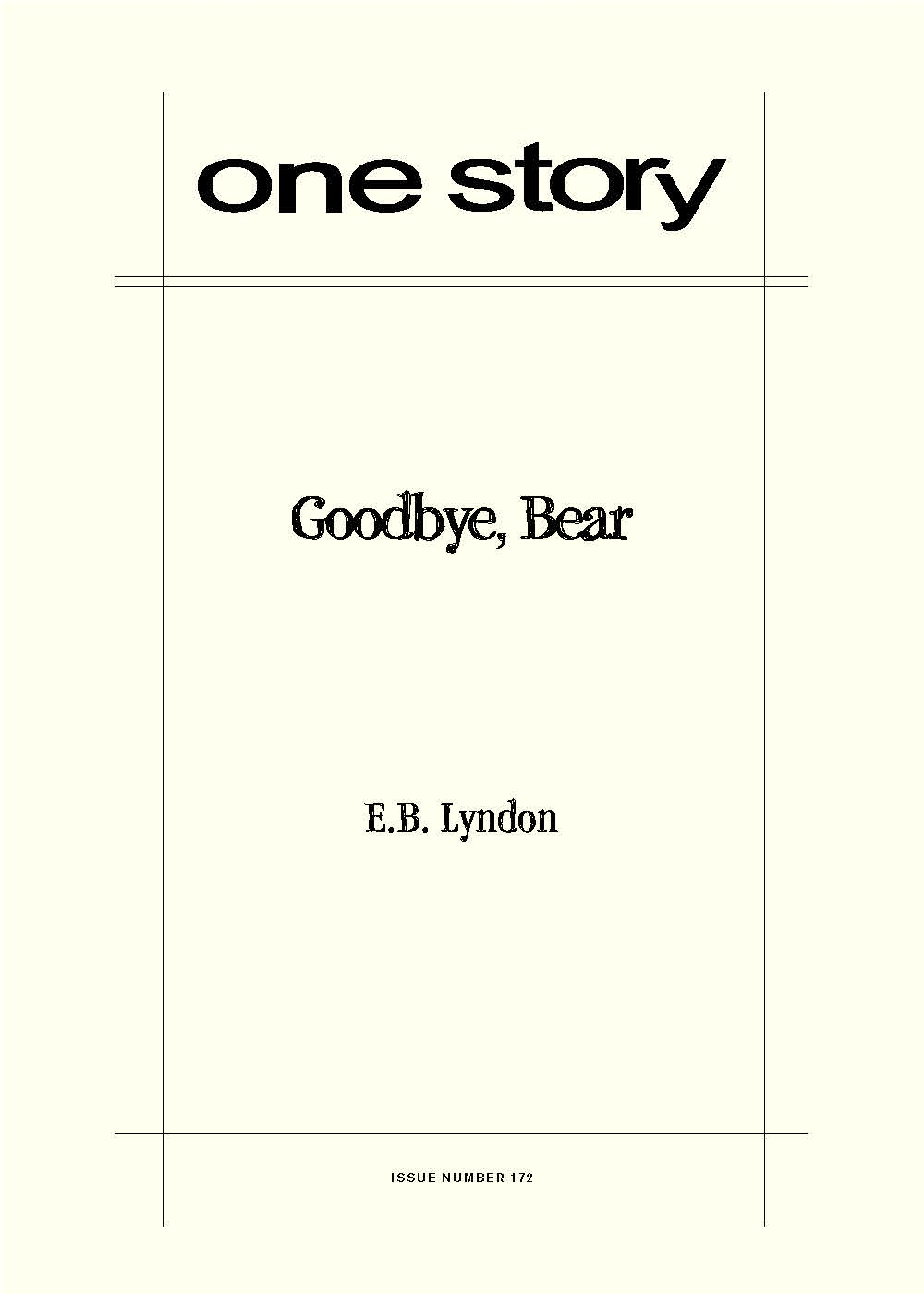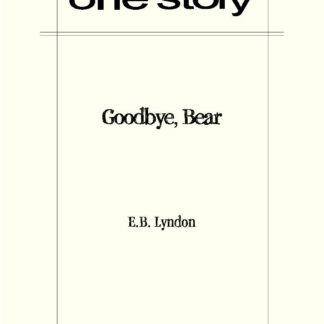
Goodbye, Bear
31 in stock
Excerpt
It was a week before my brother’s engagement party. I was on the phone with my mother. She was grilling me about the guy I was seeing—was he the real deal, or just another fine-for-now? I told her my feelings weren’t reliable at the moment.
“You,” she said. “Always a finger on your emotional pulse.”
“But that’s what I’m trying to tell you,” I said. “No pulse. I think I’m dead.”
“Count yourself lucky, Seed. I’m so exhausted I could do a head-plant in floral samples.” She went on about the wedding. “The Born-Agains don’t get it. Toddlers at receptions corrupt the joy. But it’s her wedding,” she sighed, meaning: wedding ruined.
I kept quiet. I felt bad for my mother. The universe had betrayed her. She had middle-ear issues that tilted the room like an amusement park ride. An auto-immune condition had de-pigmented her skin, and now her chest resembled a pointillist painting. This is how my mother saw the world—as dots to be managed.
My father got on the phone. “Life is a long, lonely road. At least your brother won’t have to do it alone,” and I could hear him wiping his glasses.
E.B. Lyndon
E.B. Lyndon’s fiction and creative nonfiction has been published in Fence, Glimmer Train, ELLE, the LA Review of Books, the Columbia Journalism Review, the New York Observer, and other publications. A three-time Pushcart nominee, she recently received her MFA from Syracuse University, where she received the Joyce Carol Oates Award for fiction. She is currently working on a short story collection and two novels.
Q&A by Hannah Tinti
- HT: Where did the idea for this story come from?
- EL: Initially the story was about a girl who’d convinced herself that she was already dead. The original conceit developed from a conversation I had with a meditation teacher — one that upset me more than I can demonstrate here. I’d been practicing on and off for about five years and finally, I thought, had hit upon a method that “worked.” Roughly, the method involved dividing myself in two, with half of me (the “witness”) perched in outer space looking down on the other half (the tortured self) and basically emanating rings of compassion for it. When I (proudly) explained this process to my teacher, he said, “But you know there is no witness, right? You’re making all that up.” This basically threw me off the spirituality wagon. Soon after I tripped over a bar stool and broke my elbow and got this insane migraine from the Percocet, and when the migraine wore off, I was like, “Now what?” I started writing about the feeling of deadness, and by that I mean hopelessness. The story started out pretty Nihilistic. And narcissistic. And then I went with the narcissism, and realized the “I’m too dead to feel” thing could be the perfect excuse to not get close.
- HT: What was the most challenging aspect of writing this story?
- EL: The most frustrating part was trying to figure out what the narrator’s problem was. Why is she playing the emotionally dead card? What is this essential pain from which she so desperately wishes to be released? I kept trying to link her skittishness and desire for “freedom” (i.e., to behave irresponsibly without consequences) to one particular incident or trauma, but it just felt false. When I finally stopped trying to force causality and just let her be how she was, I saw that I already had my answer. That is, there was no answer. Only questions—questions I put in other characters mouths (in the most harassing way possible).
- HT: How did you come up with the character of Blago?
- EL: Oh god. I might have known someone who behaved a bit like Blago. I might have dated him. Briefly. Maybe.
- HT: Do you consider “Goodbye Bear” a love story?
- EL: I didn’t at first. I thought it was a story about a brother who abandons the values and lifestyle of one family in favor of another, and a narrator who feels a little betrayed by the fact that her brother grew up and left her behind. I was pretty determined at first that the brother should be her main object of focus—she wanted to understand whether his newfound spirituality was real, and if so, could it work for her, too. The first few drafts were very introspective and rambly and not so focused on Blago. Finally my workshop teacher at Syracuse (George Saunders) told me to stop favoring the ideas, themes, and logic in my head, and see where the pleasure was happening on the page. “You don’t get points for self-consciously created themes.” And there was real freedom in that.
- HT: There is a lot of philosophy in this story. Was that intentional? And did you study philosophy in school?
- EL: I did not study philosophy in school. I took an intro to philosophy class freshman year and got so tangled in all the abstract hypotheticals that I dropped it and never looked back. I preferred to explore the nature of reality through characters in conflict and characters in lust and characters afraid of each other and themselves and what they were capable of. So I turned to Russian Literature.
- HT: Bams/Seed appears to be on a personal quest. Do you think she ever finds the enlightenment/self-knowledge she is seeking?
- EL: Yes. She finds it. And then it escapes her. Again and again and again.
- HT: What are you working on now?
- EL: Two novels — I can’t decide which one to prioritize so I’m sort of skating back and forth. This is probably a terrible strategy.
- HT: What is the best bit of advice about writing you have ever received?
- EL: If you’re not risking intimacy, you’re not risking much of anything.—Lynne Tillman
